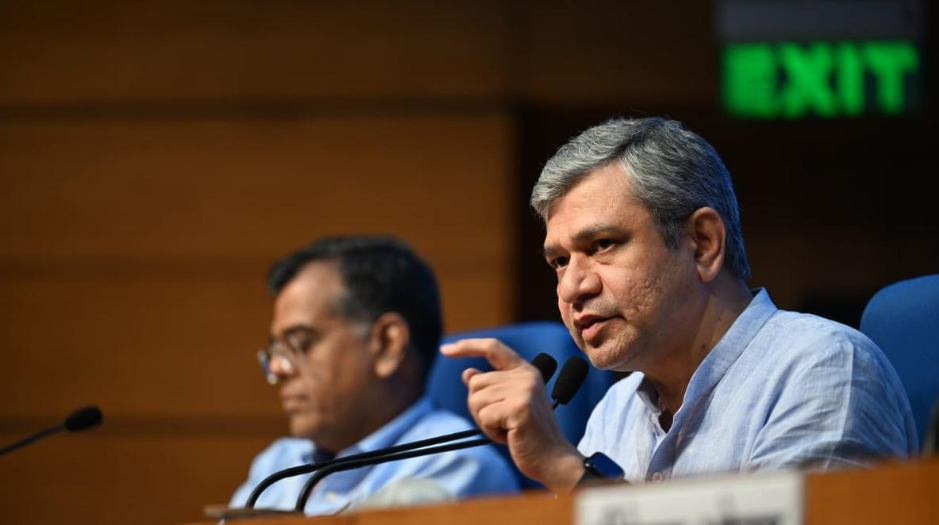Appointment to Cabinet Committees (GS Paper 2, Polity)

Introduction
- The recent reconstitution of eight Cabinet committees by the Union government has brought attention to the role and significance of these committees in the Indian executive framework.
- Notably, the Cabinet Committee on Economic Affairs (CCEA) has seen the addition of three new members, while the Appointments Committee of the Cabinet (ACC) and the Cabinet Committee on Security (CCS) remain unchanged.
- Concurrently, the Lok Sabha Speaker has amended the oath-taking rules for Members of Parliament, barring any additional remarks during their oath.
What are Cabinet Committees?
About
- Cabinet Committees are subsets of the Union Cabinet, comprising selected Union Ministers.
- These committees are designed to streamline decision-making by distributing responsibilities among different groups focusing on areas like economic affairs, security, parliamentary affairs, and political affairs.
- They ensure that complex issues receive detailed consideration and are handled efficiently before being presented to the full Cabinet for final approval.
- This system is based on the principles of division of labour and effective delegation.
Types
- Standing Committees: Permanent in nature.
- Ad hoc Committees: Temporary, established to address specific problems.
Features
- Extra-Constitutional Nature: Cabinet Committees are not mentioned in the Constitution, but their establishment is provided for in the Rules of Business.
- Legal Basis: The executive in India functions under the Government of India Transaction of Business Rules, 1961, which are derived from Article 77(3) of the Constitution. This article empowers the President to make rules for the smooth functioning of the government and to allocate tasks among Ministers.
- Membership: These committees are formed by the Prime Minister based on the needs of the time and situation. Their membership typically ranges from three to eight ministers, including both Cabinet and non-Cabinet Ministers. When the Prime Minister is a member, he invariably presides over the committee.
List of Cabinet Committees
- Cabinet Committee on Economic Affairs (CCEA)
- Appointments Committee of the Cabinet (ACC)
- Cabinet Committee on Security (CCS)
- Cabinet Committee on Accommodation
- Cabinet Committee on Parliamentary Affairs
- Cabinet Committee on Political Affairs
- Cabinet Committee on Investment and Growth
- Cabinet Committee on Skill, Employment, and Livelihood
Recent Changes
- The Home Minister is the only Cabinet member included in all committees.
- The Prime Minister heads six of these committees, except for the Committee on Accommodation and the Cabinet Committee on Parliamentary Affairs.
- No changes have been made to the Appointments Committee, headed by the Prime Minister with the Home Minister as the sole member.
Parliamentary Committees
- Parliamentary committees are specialized bodies that handle the detailed work of Parliament, which is too complex and extensive to be conducted within full House sittings.
- These committees ensure thorough scrutiny, discussion, and investigation into specific matters. Types include Standing Committees and Departmentally Related Standing Committees (DRSCs).
Groups of Ministers
- Groups of Ministers (GoMs) are ad hoc bodies formed to provide recommendations on emergent issues and critical problem areas.
- Some GoMs are empowered to make decisions on behalf of the Cabinet, while others make recommendations. Once their advice is crystallized, they are disbanded.
Lok Sabha Speaker Amends Oath-Taking Rules for MPs
- A new clause has been added to ‘Direction 1’ in the ‘Directions by the Speaker’ to manage matters not explicitly covered by existing rules.
- This amendment mandates that MPs must take and subscribe to the oath or affirmation without using any words or expressions as prefixes or suffixes to the prescribed form.
Challenges of Cabinet Committees
- Overlapping Mandates: Leads to delays, inefficiency, and conflicts as committees vie for control, causing proposals to get stuck and decisions to be slow.
- Lack of Expertise: Committees may lack the necessary expertise, resulting in poorly informed decisions with unintended consequences.
- Information Silos & Poor Communication: Committees may operate in isolation, leading to duplication of effort, missed opportunities for synergy, and decisions based on limited information.
- Political Pressure & Short-termism: Political considerations can push committees to prioritize short-term gains over long-term planning, leading to reactive measures instead of proactive solutions.
- Lack of Accountability & Transparency: Secretive decision-making erodes trust, as the legislature cannot hold committees accountable without clear information about their activities.
- Concentration of Power: If decision-making authority is concentrated in a few committees or individuals, valuable perspectives might be excluded, leading to unbalanced decisions and potential resentment among excluded parties.
Way Forward
- Clear Mandate: Define committee mandates clearly to avoid ambiguity. Establish a central conflict resolution body for inter-committee disputes.
- Expert Appointment: Include subject matter experts as advisors or temporary committee members and partner with external think tanks for specialized knowledge.
- Better Information Sharing: Implement a centralized information-sharing platform for all committees and establish regular inter-committee briefings to foster collaboration.
- Long-Term Goals: Mandate committees to develop long-term strategic plans alongside short-term action items. Integrate independent economic or social impact assessments into decision-making.
- Accountability: Regularly release meeting minutes and summaries to ensure accountability.
- Broad-Based Consultation: Ensure broader consultation by inviting other cabinet members as special invitees.
Conclusion
- Cabinet Committees play a crucial role in the Indian executive framework, ensuring efficient decision-making and handling complex issues.
- However, they face challenges that need to be addressed to improve their effectiveness.
- Clear mandates, expert appointments, better information sharing, long-term planning, accountability, and broad-based consultation are essential steps towards enhancing the functioning of these committees.
- By addressing these challenges, Cabinet Committees can better serve the needs of the government and the public, ensuring transparent, efficient, and informed decision-making.


